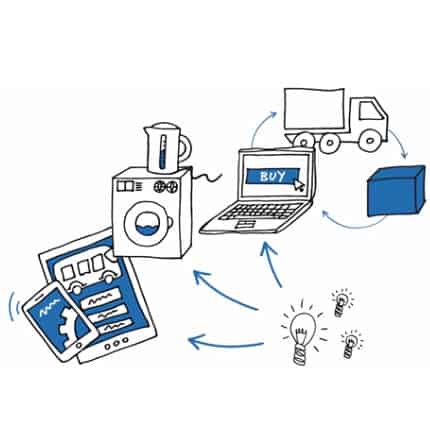Shortlist for £50,000 Design Award Announced
More than 200 ideas were entered for the Prize with the judging panel whittling this down to just 25 semi-finalists in March.
3D printed hands and household objects that ‘tutor’ have been shortlisted for a £50,000 challenge prize.
Ten designers, developers and entrepreneurs have been named finalists in the Inclusive Technology Prize – a competition intended to help unearth new products, technologies and systems for people living with a long term illness or disability in the UK.
Run by Nesta in partnership with Leonard Cheshire Disability and with support from the Department for Work and Pensions, Innovate UK, the Department for Business Innovation and Skills and Irwin Mitchell, the Inclusive Technology Prize is designed to champion the issue of assistive technology and encourage co-creation with disabled people.
More than 200 ideas were entered for the Prize with the judging panel whittling this down to just 25 semi-finalists in March. They each received £2,000 in addition to support from Leonard Cheshire Disability’s Enterprise and Innovation Team to develop their ideas. The ten finalists will now each receive £10,000 as well as tailored support to develop a prototype, conduct user testing and create viable business plans. A winner will be selected from the finalists in March 2016 and awarded £50,000 to help bring their product to market.
Finalists for the prize include:
● HandyClix from National Star: Wheelchair lap belts require two hands to connect them but many users are impaired in the use of their hands. HandyClix is a one handed lap belt designed to allow the user to attach and tighten it themselves.
● How do I? from Swiss Cottage School, Development and Research Centre: Uses Near Field Communication (NFC) to teach independent living skills to those with learning difficulties. An application links instructional videos to NFC stickers attached to household objects. When you hold your tablet or smartphone over a sticker, the app will launch a video for that object, e.g. How do I make a cup of tea? on the kettle. How do I get dressed? on the wardrobe.
● Affordable Hands by Open Bionics: 3D printing of bionic hands that will be sold to amputees for £1,000 directly and helping to promote independence, including picking up forks, getting dressed, or going to the bathroom.
All of the finalists and full judging panel are detailed on the website HERE.


